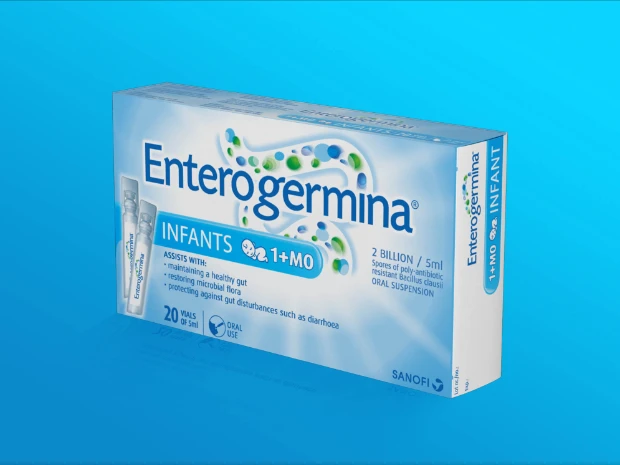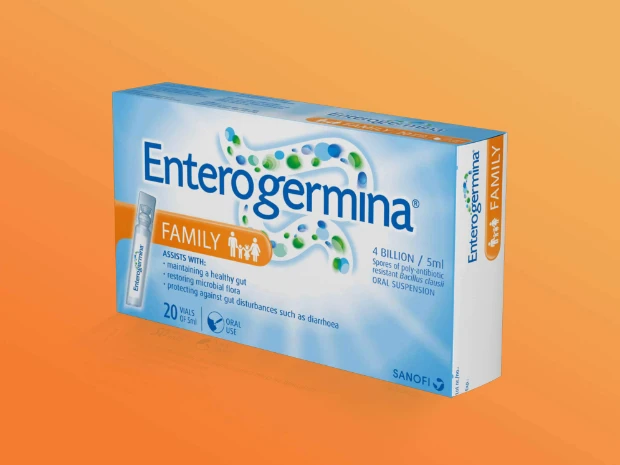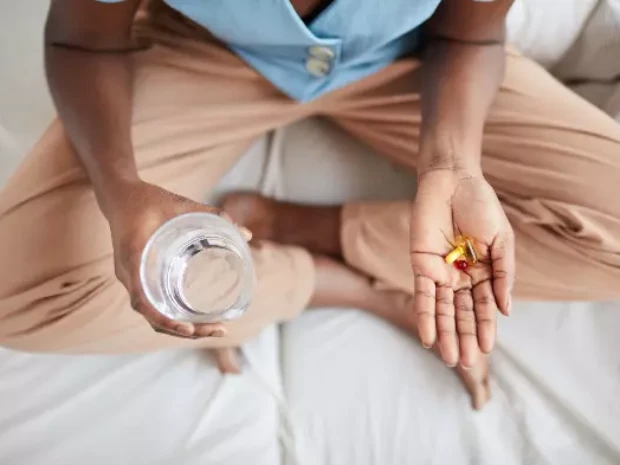What Causes Dysbiosis?
There are many things that can cause an imbalance in your microbial colonies resulting in dysbiosis. The following are the most common:
Antibiotics & Medications
Frequently used medications, especially antibiotics, tend to negatively affect one’s gut flora. 1
High Stress Levels
Stress and anxiety may weaken your immune system, making it harder for the body to fight off invasive bacteria. 1
Unbalanced Diet
Any dietary shift that increases the amount of sugars, proteins or additives in your diet can put the body at risk for dysbiosis. 1
How to Recognise Dysbiosis
Some symptoms of dysbiosis are mild and temporary, such as an upset stomach. Others are more severe and will require suitable treatment. 1
Abdominal Pain
Discomfort in the abdominal region is a common symptom of dysbiosis. It can range in severity from manageable to extremely unpleasant. 2
Bloating
A struggling digestive system makes you susceptible to excessive gas build up, which can sometimes exit the body through the mouth. 2
Diarrhoea
Imbalanced microbiota will often make themselves known through regular, uncomfortable spells of diarrhoea. 2
Dysbiosis: Tips & Remedies
Dysbiosis may be difficult to manage without the help of a healthcare provider, but there are a few things you can try.
Learn to relax
Many people believe that practising stress-relieving activities, such as meditation and yoga, will help to reduce stress levels and help the body to absorb nutrients more efficiently, and thereby relieve the dysbiosis. 1
Avoid bacteria-killing products
Environments that are overly sterile may work against your own good bacteria, while they are fighting to correct your internal imbalance. 3
Consider antibiotics
Some cases of dysbiosis require the aid of an antibiotic, but antibiotics can also trigger dysbiosis, so it is vital you use a quality probiotic when taking this route. 1

How to Prevent Dysbiosis
If you have ever suffered from dysbiosis, you will probably agree that it is better to try and prevent it from the start - and to do so as quickly as possible.
Frequently Asked Questions
Dysbiosis is one of the most dreaded intestinal conditions. You’ve probably got a few questions for us, so take a look at our FAQ.
-
Somewhere along the line, your gut microbiota probably became imbalanced as a result of antibiotic treatment, an unhealthy diet, or abuse of alcoholic substances. 6
-
Without treatment, dysbiosis can take months to heal on its own. A targeted treatment can help to alleviate symptoms of dysbiosis in just a few days. 7
-
A daily ritual of probiotics and prebiotics will work to restore balance in your gut microbiota, eventually eliminating dysbiosis and its respective symptoms. 8
Our Products
Entrogermina's range of products works with the body to deliver effective solutions to various digestive conditions - the key to internal balance.

How can Bacillus clausii help you solve your gut problems?
Bacillus clausii is a type of spore-forming good bacteria that works to rebalance the flora in your intestine. When consumed regularly, it can help to manage different conditions associated with gut disorders.
Stay Informed
Learn how different daily triggers could be contributing to intestinal disorders, and how a good probiotic could be the ally you never knew you needed!
- What Causes Dysbiosis and How Is It Treated? Healthline, February 2019 [quoted June 2021] https//www.healthline.com/health/digestive-health/dysbiosis
- Imbalanced Gut Bacteria Could Be Playing A Big Role in Your Health, Parsley Health, November 2020 [quoted June 2021] https://www.parsleyhealth.corn/blog/healing-gut-dysbiosis-symptoms/
- Common antimicrobial agent rapidly disrupts gut bacteria, Science Daily, May 2016 [quoted June 2021] https://sciencedaily.com/releases/2016/05/160518152805.htm
- Rebuilding the Gut Microbiota Ecosystem, PMC, August 2018 [quoted June 2021] https//www.ncbi.nim.nih.gov/pmcfarticles/PMC6121872/
- Drinking Causes Gut Microbe Imbalance Linked to Liver Disease, Scientific American, February 2016 [quoted June 2021] https://mwwscientificamerican.com/article/drinking-causes-gut-microbe-imbalance-linked-to-liver-disease/
- What causes dysbiosis and who's at risk? Healthline, February 2019 [quoted June 2021] https://mww.healthline.com/health/digestive-health/dysbiosisi#tcauses-and-risk-factors
- How to Improve Your Gut Microbiome in a Day, Cristiane Northrup, August 2020 [quoted June 2021] https://www.drnorthrup.com/how-to-Improve-your-gut-microbiome-in-a-day/
- Part 2: Treatments for Chronic Gastrointestinal Disease and Gut Dysbiosis, PMC, February 2015 [quoted June 2021] https://www.ncbi.nim.nih.gov/pme/articles/PMC4566455/








